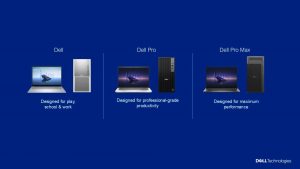Zuckerberg Expects Facebook Mobile Roll Out to be a Breeze
![]() In a recent interview, Facebook CEO Mark Zuckerberg discussed how penetrating the mobile scene proved to be a challenge but it wasn’t that different in setting up Facebook in the first place. Zuckerberg stated that getting married was a greater change than shifting their focus on Facebook for mobile devices.
In a recent interview, Facebook CEO Mark Zuckerberg discussed how penetrating the mobile scene proved to be a challenge but it wasn’t that different in setting up Facebook in the first place. Zuckerberg stated that getting married was a greater change than shifting their focus on Facebook for mobile devices.
Though the shift isn’t as smooth or as fast as people want it to be, it’s getting there.
In June, Facebook launched the App Center – a market for iOS and Android apps that are tied up with Facebook. It helps promote the more popular apps, debuted with over 600 apps, and they will continue adding as more developers integrate Facebook into their apps.
They’re also acquiring mobile app developers or companies whose products would help them develop their mobile service. They acquired Instagram for $1 billion before they even went public, Karma – the mobile gifting app, Glancee – the social discovery app, and Face.com – the startup that specializes in face recognition for mobile devices. Though it may still seem a bit vague as to how all these acquisitions will tie together, it will soon make sense – hopefully. Some would conjecture they’re building up an arsenal of mobile weapons for when they finally launch their very own smartphone. Or they can use all these technologies in making their Facebook app the ultimate app for all kinds of devices.
Mobile ad unit
The other side of the mobile sector that they’re focusing in on is mobile advertising. It was predicted that Facebook mobile ads could reel in $5 billion a year in revenue. Aside from this, Facebook is said to be working on a new mobile ad unit that would target users based on their mobile app usage patterns. This simply means that Facebook would be tracking their users’ activities and use that data to deliver ads related to your mobile activities using Facebook Connect.
Mobile progress
The iOS Facebook app now features Timeline for pages. Though this might not seem much, it’s a way for Facebook to keep their consumers interested and engaged, better replicating the desktop experience for mobile users (a strategy Twitter’s also working on after their recent iOS and Android update). And it’s not only the consumers that they’re to please, but their business customers as well. Pages with Timeline, admit it or not, look more interesting. And Timeline for Pages are customized in a way that it features a smaller cover photo so there would be more room for the page’s description. Not everyone has this feature yet, as with every Facebook feature, it’s a gradual roll out.
One remaining issue that will only be exacerbated by mobile is the matter of privacy and leveraging personal data. Just like when they rolled out the “seen” feature on their messages (now is also available in group posts/messages), and then the recent e-mail debacle when they rolled out their @facebook.com e-mail address. One thing they need to be able to successfully penetrate the mobile scene is to figure out a way to balance user data and privacy with their own advertising goals.
A message from John Furrier, co-founder of SiliconANGLE:
Your vote of support is important to us and it helps us keep the content FREE.
One click below supports our mission to provide free, deep, and relevant content.
Join our community on YouTube
Join the community that includes more than 15,000 #CubeAlumni experts, including Amazon.com CEO Andy Jassy, Dell Technologies founder and CEO Michael Dell, Intel CEO Pat Gelsinger, and many more luminaries and experts.
THANK YOU













